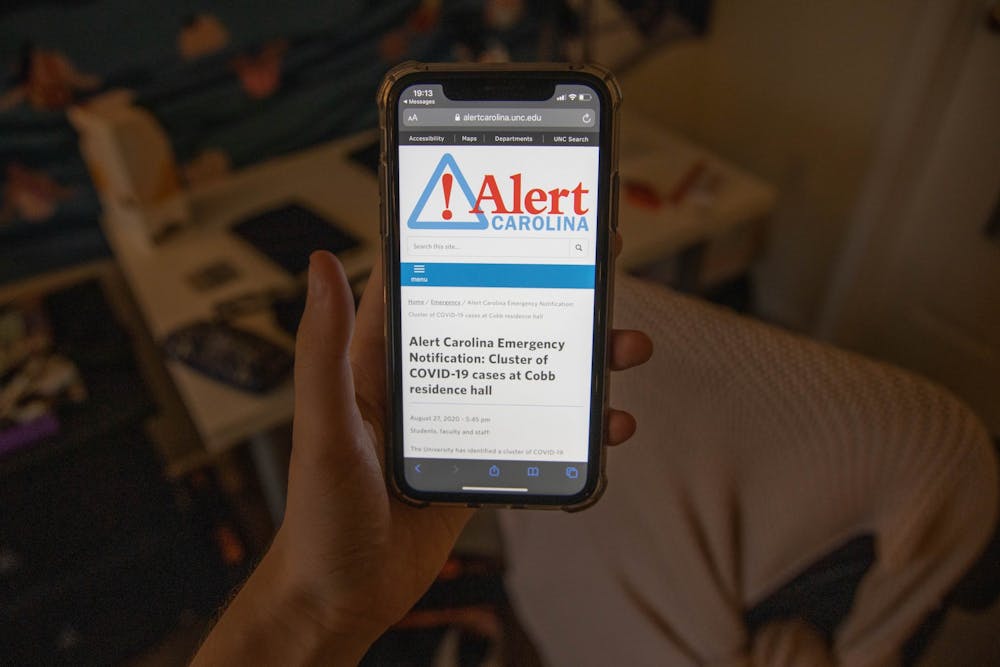The University announced Friday that it will no longer use Alert Carolina messages to inform the campus community about new COVID-19 clusters. Instead, information about clusters will be provided on the Carolina Together website and University social media.
Students and faculty say they are confused by this decision and view the communication change as a step backwards for transparency, which they said had already been lacking throughout the reopening process.
“Why are you giving me that added task of going to a website and hitting refresh?” Deb Aikat, a journalism and media professor and member of the Faculty Executive Committee, said. “This doesn't make sense and I sincerely feel this is against the culture of transparency that we aspire.”
Skyler Singleton, a senior majoring in political science and history, said she is concerned this new method of communicating clusters will be less equitable and timely.
While the University will still be sharing the information, she said it will be in a less visible way that adds responsibility onto students, faculty and staff to seek out the information themselves by regularly checking the Carolina Together website and University social media — something that is not already part of her daily routine.
“This change in our communications in no way diminishes the University’s sense of urgency in ensuring that this information is shared in a timely, transparent and accessible fashion,” Vice Chancellor for Institutional Integrity and Risk Management George Battle said in an email Friday.
Since Aug. 14, the University has sent nine Alert Carolina messages notifying the campus community of 12 COVID-19 clusters at on-campus and off-campus housing affiliated with the University.
The most recent cluster was identified at Cobb Residence Hall on Aug. 27 and announced via Alert Carolina. Yet the following day, the University announced Alert Carolina would no longer be used for the purpose of communicating clusters.
The Friday email said the Alert Carolina Emergency Notification system is meant to communicate the most critical and urgent information for the safety of the campus and that the University is following best practices in its use.



